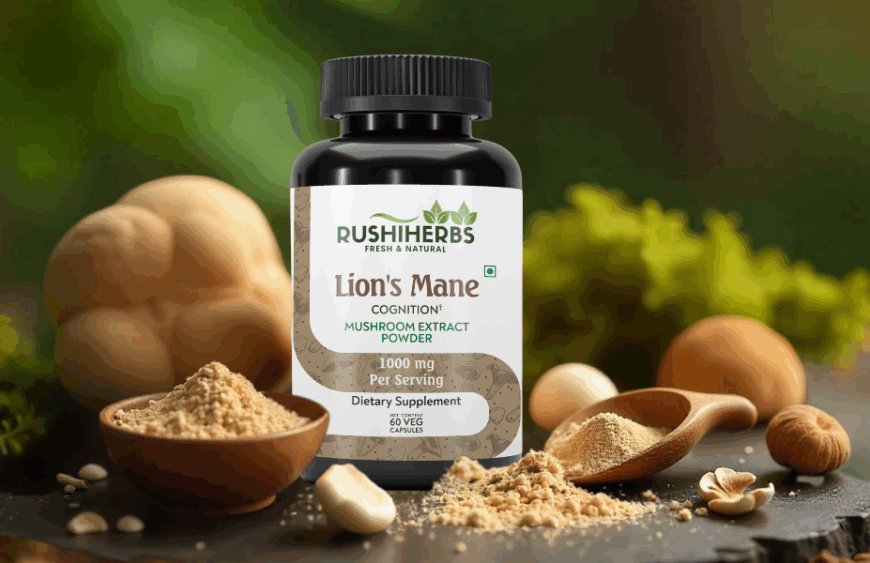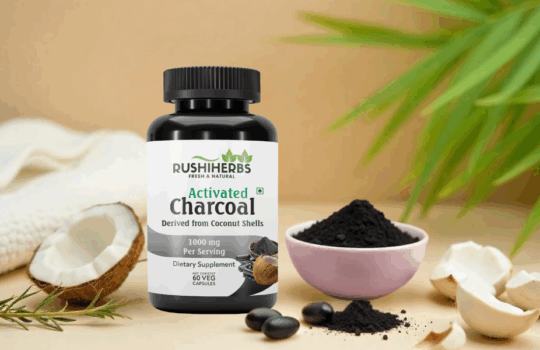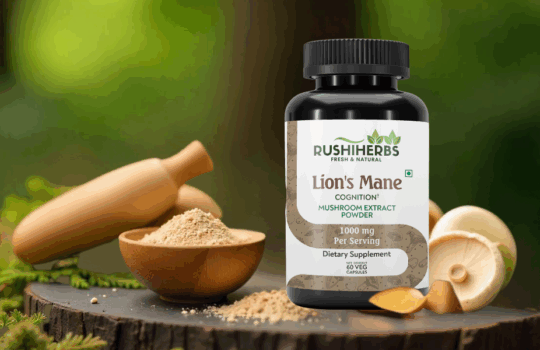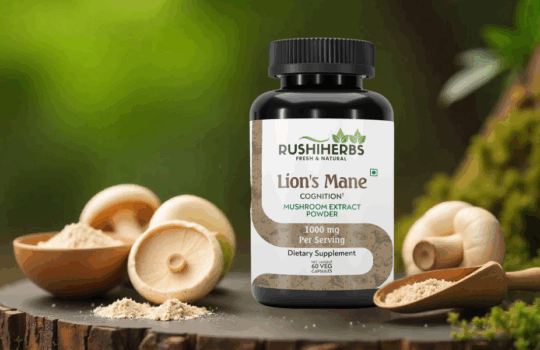In today’s fast-paced world, quality sleep is a precious commodity. Millions struggle with falling asleep or staying asleep, leading to fatigue, poor concentration, and long-term health problems. What if a natural supplement could help support not only sleep but also the brain’s overnight restoration? Enter Lion’s Mane Mushroom Extract, a powerful adaptogen and nootropic known for its brain-boosting properties. While it’s widely celebrated for enhancing memory and focus, emerging research suggests that Lion’s Mane may also play a significant role in improving sleep quality and supporting the brain’s detoxification during rest.
In this article, we will explore the fascinating connection between sleep and brain health, the science behind Lion’s Mane’s support for restful nights, and how it can be an effective natural ally for those seeking better sleep and cognitive reset.
The Importance of Sleep for Brain Health and Detox
Before diving into Lion’s Mane, it’s essential to understand why sleep matters so much for the brain.
Sleep as a Brain Detoxifier
During sleep, your brain undergoes a critical detoxification process. A specialized system known as the glymphatic system activates while you rest. This system clears out waste products such as beta-amyloid and other neurotoxins that accumulate during waking hours. Failure to properly clear these wastes has been linked to cognitive decline and neurodegenerative diseases like Alzheimer’s.
Quality sleep is therefore not just about rest—it’s a biological necessity for brain health, memory consolidation, and emotional regulation.
How Poor Sleep Impacts Cognition
Chronic poor sleep or insomnia leads to a range of cognitive impairments:
- Reduced memory retention
- Difficulty focusing and decision making
- Increased risk of anxiety and depression
- Impaired immune function
- Accelerated brain aging
This creates a vicious cycle where stress and poor sleep damage cognition, which in turn worsens sleep patterns.
What Is Lion’s Mane Mushroom?
A Natural Brain Booster
Lion’s Mane (Hericium erinaceus) is a unique medicinal mushroom long used in Traditional Chinese Medicine. Named for its distinctive white, shaggy appearance resembling a lion’s mane, it is gaining widespread popularity as a nootropic or “smart drug” that supports cognitive function.
Key Bioactive Compounds
Lion’s Mane contains compounds called hericenones and erinacines that stimulate the synthesis of Nerve Growth Factor (NGF), a protein essential for the growth, maintenance, and survival of neurons. By promoting NGF production, Lion’s Mane helps enhance brain plasticity, repair damaged nerve cells, and improve communication between neurons.
This neuroprotective activity underpins many of its cognitive benefits, including memory, focus, and mood support.
How Lion’s Mane Supports Sleep and Brain Detoxification
While Lion’s Mane is often linked to brain stimulation, its influence on sleep is more subtle but significant.
1. Promotes Nerve Regeneration and Brain Repair Overnight
The brain repair processes stimulated by Lion’s Mane happen mostly during sleep. By boosting NGF levels, it supports the regeneration of neurons and synaptic connections damaged by stress, aging, or daily cognitive strain.
This enhancement in brain repair capacity can contribute to more effective overnight cognitive reset, allowing you to wake up feeling mentally refreshed.
2. Supports the Glymphatic System’s Detox Function
Though research is still emerging, Lion’s Mane’s neuroprotective compounds may help maintain the health of glial cells—support cells critical to the glymphatic system.
Healthy glial function ensures efficient clearance of neurotoxins during sleep, which may improve cognitive longevity and reduce the risk of neurodegeneration.
3. Reduces Anxiety and Calms the Nervous System
Anxiety and racing thoughts are major contributors to insomnia and restless nights. Lion’s Mane has demonstrated anxiolytic (anxiety-reducing) effects in several studies, which can help soothe the nervous system and prepare the mind for restful sleep.
Reducing nighttime anxiety naturally improves sleep quality and duration without the grogginess often caused by pharmaceutical sleep aids.
4. Balances Mood and Supports Emotional Wellness
Mood disorders like depression are closely linked with disrupted sleep. Lion’s Mane’s ability to improve mood and reduce symptoms of depression can indirectly lead to better sleep hygiene by lowering emotional stress.
Scientific Evidence Supporting Lion’s Mane for Sleep and Cognitive Health
Animal Studies
Several animal studies have revealed promising sleep-related benefits of Lion’s Mane:
- A 2019 study found that Lion’s Mane extract improved sleep quality and reduced fatigue in mice by modulating neurotransmitters involved in sleep regulation.
- Another study demonstrated enhanced hippocampal neuron regeneration after Lion’s Mane administration, suggesting improved memory consolidation during sleep.
Human Trials
Human research is more limited but encouraging:
- A 2020 clinical trial showed that Lion’s Mane supplementation improved sleep quality and cognitive function in menopausal women experiencing mood swings and sleep disturbances.
- Participants reported reduced anxiety levels and better overall sleep after consistent Lion’s Mane use for 4 weeks.
Expert Opinions
Neuroscientists and herbalists alike are intrigued by Lion’s Mane’s potential as a natural sleep and brain health enhancer. While not a sedative, it supports the underlying physiological processes that promote restorative sleep.
How to Use Rushi Herbs Lion’s Mane Cognition+ Mushroom Extract Powder for Better Sleep
Recommended Dosage
For sleep benefits, a consistent daily dose of 500–1000 mg of high-quality Lion’s Mane extract is generally effective. Rushi Herbs Lion’s Mane Cognition+ offers 1000 mg per serving, making it easy to incorporate into your routine.
When to Take
Taking Lion’s Mane in the evening or before bedtime may maximize its brain repair and calming effects. However, some people prefer morning use for daytime cognitive clarity. Experiment with timing to find what suits you best.
Combining with Other Sleep Support Practices
To boost results, combine Lion’s Mane with other natural sleep-promoting habits:
- Maintain a regular sleep schedule
- Avoid screens and blue light before bed
- Practice relaxation techniques such as meditation or deep breathing
- Limit caffeine and heavy meals in the evening
Additional Benefits of Lion’s Mane Beyond Sleep
While this article focuses on sleep and brain detox, Lion’s Mane offers other powerful health benefits that complement its role in cognitive wellness:
- Enhanced memory and learning
- Improved focus and productivity
- Mood stabilization and depression relief
- Immune system support
- Anti-inflammatory and antioxidant properties
Frequently Asked Questions (FAQs)
Is Lion’s Mane safe for long-term use?
Yes, Lion’s Mane is generally safe for daily use with no serious side effects reported in clinical studies. However, consult your healthcare provider if you are pregnant, nursing, or on medication.
How soon can I expect to see sleep improvements?
Most users report noticeable effects within 2–4 weeks of consistent use.
Can Lion’s Mane cause drowsiness?
Lion’s Mane is not a sedative and typically does not cause drowsiness. It supports natural sleep mechanisms rather than inducing sleep directly.
Can I take Lion’s Mane with other supplements?
Yes, it is often combined with other nootropics or adaptogens. Just be mindful of total dosage and consult your healthcare provider if uncertain.
Conclusion: Unlock Restorative Sleep and Brain Detox Naturally with Lion’s Mane
Quality sleep is the foundation of mental clarity, emotional balance, and long-term brain health. Rushi Herbs Lion’s Mane Cognition+ Mushroom Extract Powder offers a natural, scientifically-backed way to support your brain’s overnight detoxification and cognitive reset. By promoting nerve regeneration, calming anxiety, and enhancing glymphatic function, Lion’s Mane helps you wake up refreshed, focused, and ready to take on the day.
If you struggle with sleep disturbances or simply want to optimize your brain health, incorporating Lion’s Mane into your wellness routine is a smart and natural step toward lasting cognitive vitality.
Ready To Enjoy Benefits ?
Frequently Asked Questions (FAQs) About Lion’s Mane and Sleep
1. Can Lion’s Mane Mushroom help me sleep better?
Yes, Lion’s Mane supports better sleep indirectly by promoting brain repair, reducing anxiety, and balancing mood. While it is not a sedative, it enhances the brain’s natural restorative processes that occur during sleep, leading to more restful and restorative nights.
2. How does Lion’s Mane support brain detox during sleep?
Lion’s Mane contains compounds that stimulate nerve growth and support glial cells involved in the brain’s glymphatic system — the natural waste clearance process that works primarily during sleep. This helps remove toxins and supports cognitive health.
3. When is the best time to take Lion’s Mane for sleep benefits?
Many users find taking Lion’s Mane in the evening or about an hour before bedtime helpful to support relaxation and overnight brain repair. However, some prefer taking it in the morning for daytime cognitive benefits. It’s best to experiment and see what works for you.
4. Is Lion’s Mane safe to use every day?
Yes, Lion’s Mane is generally safe for daily use and well tolerated by most people. However, consult your healthcare provider if you are pregnant, nursing, or taking any medications.
5. How soon will I notice improvements in sleep quality?
Most people report better sleep within 2 to 4 weeks of consistent Lion’s Mane supplementation. Effects can vary based on individual factors like lifestyle and existing sleep issues.
6. Can Lion’s Mane cause drowsiness or make me feel sleepy during the day?
No, Lion’s Mane is not a sedative and usually does not cause daytime drowsiness. It supports the brain’s natural ability to rest and repair during sleep without inducing sedation.
7. Can I combine Lion’s Mane with other supplements or medications?
Lion’s Mane can often be safely combined with other supplements, especially nootropics or adaptogens. However, always consult a healthcare professional before combining it with prescription medications to avoid any potential interactions.
8. Who should avoid taking Lion’s Mane?
Individuals allergic to mushrooms or with specific medical conditions should avoid Lion’s Mane or consult a doctor before use. Pregnant and breastfeeding women should also seek medical advice prior to supplementation.
9. Does Lion’s Mane help with sleep disorders like insomnia?
While Lion’s Mane is not a treatment for clinical sleep disorders, its anxiety-reducing and cognitive restorative effects may help improve sleep quality for many people experiencing mild to moderate sleep difficulties.






